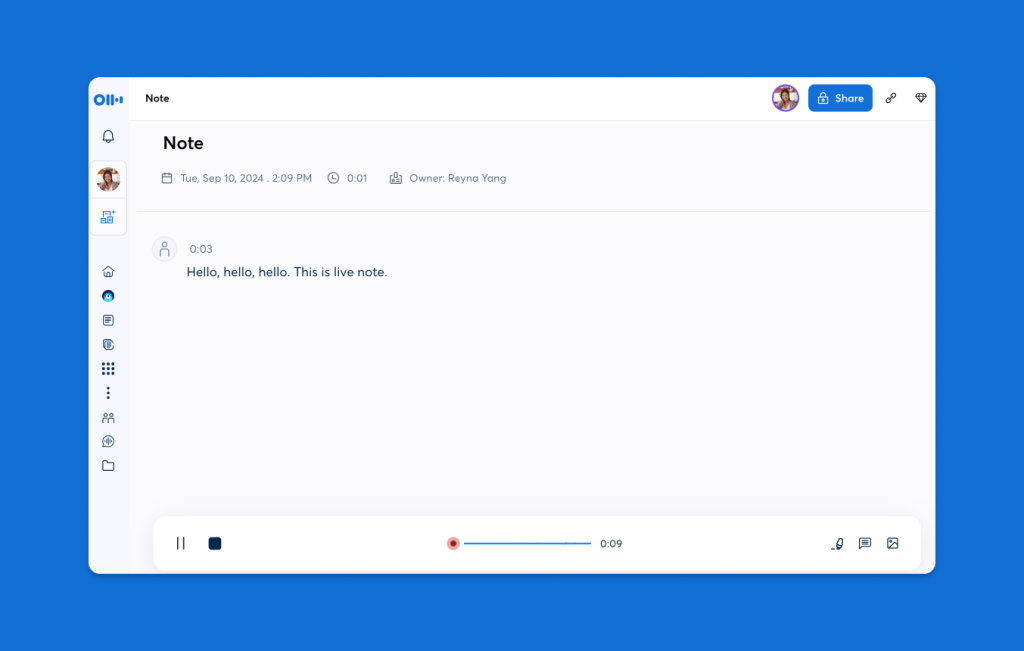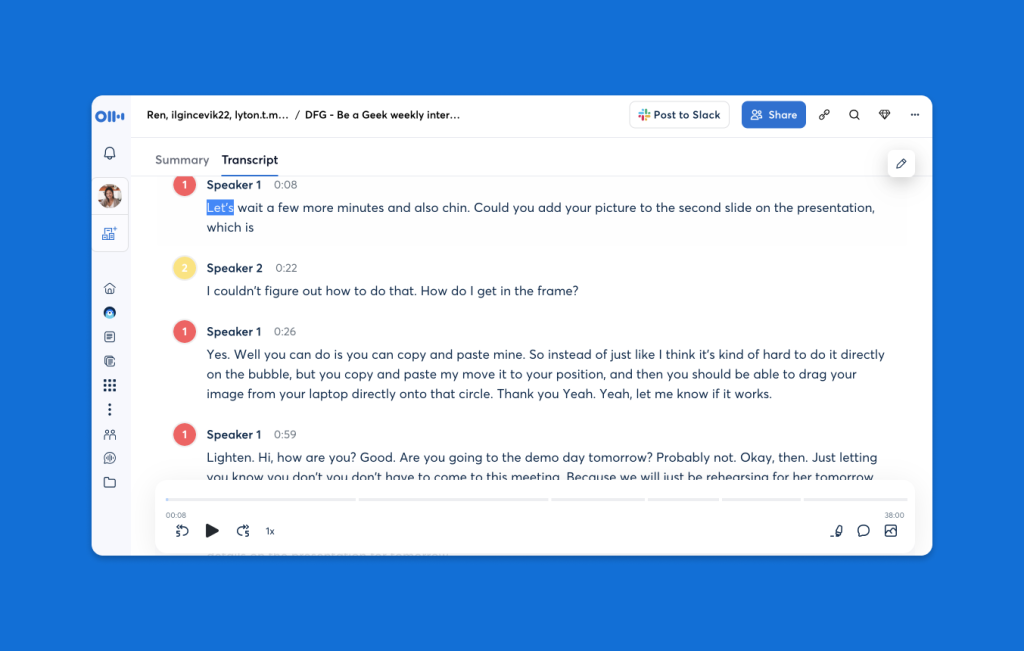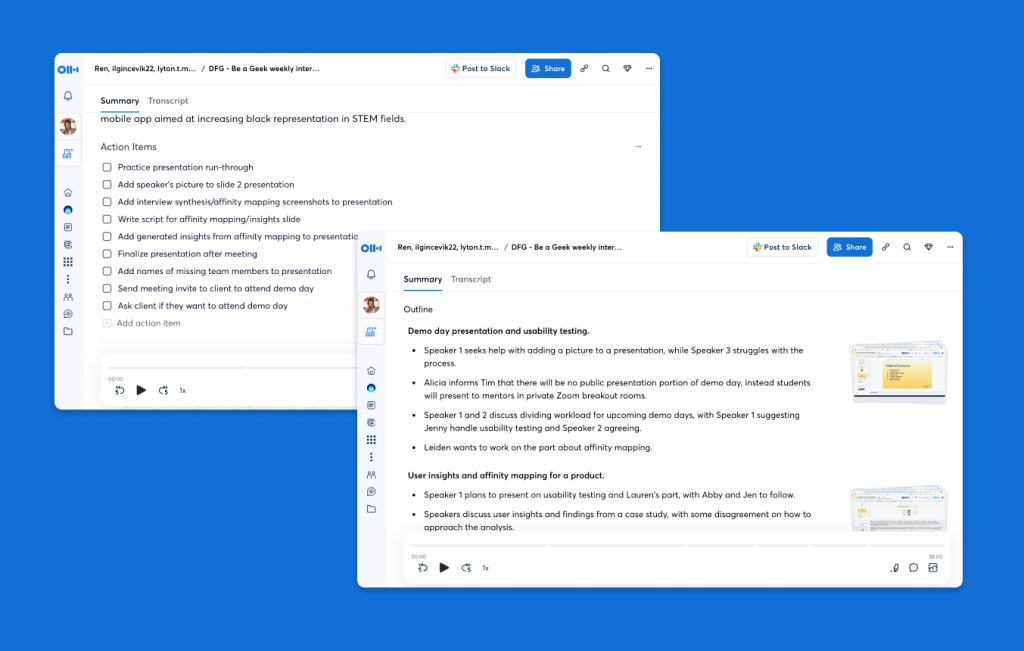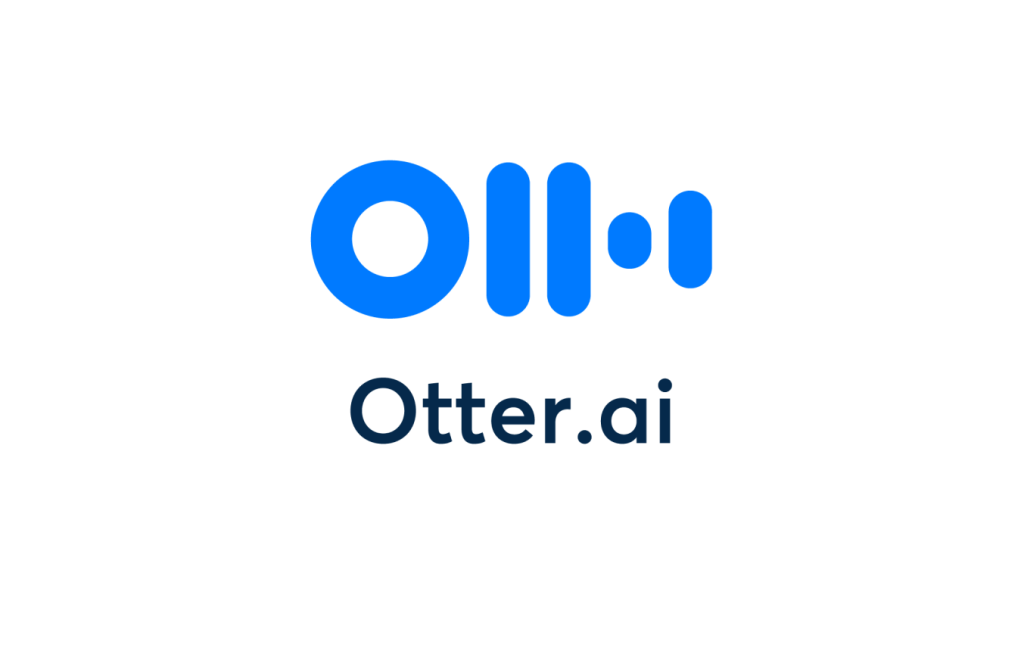Otter.ai provides real-time transcription and AI meeting note-taking services that help many working professionals and students get the most out of their virtual/live meetings without having to worry about note completion and accuracy. Though it was not originally developed for the disability community, it has gained great recognition from people with disabilities, specifically those who are deaf and hard of hearing and those with ADHD (Attention Deficit Hyperactivity Disorder).
This blog post aims to dive into the different features of Otter.ai and apply the different models of disability to identify what makes Otter.ai an assistive technology.
Key features
Speech-to-text transcriptions in real-time

Otter.ai has a voice note feature that allows users to transcript real-time speech. Users can record real-time meetings, conversations, videos, etc. and Otter.ai will turn them into texts in no time.
1. Social model: Otter.ai helps users who are deaf or hard of hearing engage in daily conversations better by allowing them to view real-time transcriptions. This points out the poorly designed conditions society puts people with disabilities into as many cannot engage in or follow group conversations on a day-to-day basis.
2. Economic model: Otter.ai enhances work efficiency and productivity for people with disabilities as they can participate and engage in work meetings better with real-time transcriptions.
3. Functional model: Otter.ai allows people with disabilities to participate in real-time meetings with its highly accurate real-time transcriptions and AI chatbot to answer questions all time.
Video and voice recording transcription with high accuracy

Users can transcribe long videos and voice recordings in short periods of time using Otter.ai. The transcriptions are reported to be more accurate than similar services in the market.
1. Social model: highly accurate video transcription helps people who are deaf or hard of hearing to understand videos without captions quickly and efficiently. It also helps people with ADHD who have trouble focusing on note-taking during virtual/in-person meetings to get accurate notes without having to go through all the trouble.
2. Economic model: Highly accurate transcriptions help users to get access to, understand, and review meeting notes/transcriptions easily and efficiently, thus boosting productivity.
Transcript summary with images

Besides highly accurate transcriptions, Otter.ai goes all the way to provide the best transcription experience by providing summaries, action items, and even organization of images for recordings that have images in it.
Functional model: The summary and images provide innovative solutions to people with ADHD who struggle with focusing for a long time, helping them to grasp the content of long meetings.
Conclusion
To conclude, Otter.ai’s transformative transcription service helps people with disabilities to work, complete tasks, and function in the society. Its key features, including real-time speech-to-text transcriptions, video and voice recording transcriptions, and comprehensive summary services, strongly enhance the accessibility and usability of virtual and live meetings. Otter.ai shows how technology can make things easier and more inclusive. It’s a valuable tool for many people who want to participate better and work more efficiently in their jobs and studies.
